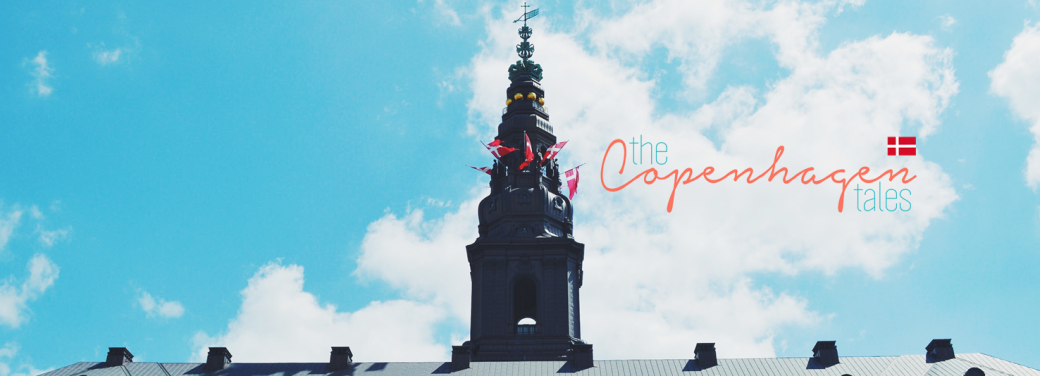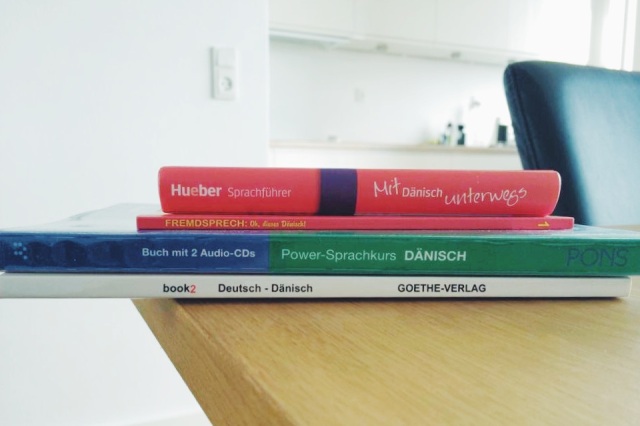I’ve recently read quite a few articles and blog posts about experiences with learning Danish, and then speaking it in the presence of Danes. It seems that most foreigners actually don’t have very positive experiences in how their attempts to speak Danish are received by native Danes. Many recount being patronized, getting sentences repeated back to them in a singy-sangy voice as if teaching a child how to speak, or being told that they really need to learn Danish (which they obviously already were).
I have to say, my own experiences with this part have been quite positive. I reached fluency in Danish relatively quickly, but (a) I absolutely think that being German helps tremendously, as the grammar is pretty much the same and many words have common roots, and (b) I’m a language person, meaning I’m quite good at hearing how a language is supposed to sound and picking up on things relatively quickly (on the other hand, if you tried to teach me the basic laws of physics or how to throw a ball further than 5m, I would fail miserably). So that naturally helped me, but I also enjoyed learning a new language. I’m already on the lookout for a new one to start once complete my last Danish course at the end of the year. When I speak Danish to Danes, I don’t get those kind of reactions, luckily. If I get any reaction to my Danish, it’s usually a positive one, and people express that they really like that someone is learning their language. They also usually acknowledge that Danish is a difficult language to learn, so they don’t have crazy high expectations.
When you come to Denmark as an immigrant and you register with the municipality, get your CPR number and all that, you are also entitled to up to three years of Danish language education - for free! I strongly encourage anyone moving to Denmark to take advantage of this offer, for these very simple reasons:
- Common courtesy. You chose to live in this society, so I think it’s only fair to make an effort to become a part of it.
- Integration. It’s a common theme among expats that it can be very hard to penetrate the Danish society, get Danish friend groups, etc. Dating or being married to a Dane usually helps, but for me, the biggest difference was when I started to be able to speak Danish with them. It made me part of the conversation more easily, since people didn’t have to switch to English to address me.
- More courtesy. In the beginning, when I was only able to express very simple sentences and didn’t understand one hundred percent of what was said to me, I was often a bit embarassed to actually try my Danish. I wanted to wait until it was completely perfect so that I wouldn’t make any mistakes. At some point, it hit me like a ton of bricks: I was just pushing my discomfort on to the Danish people I was talking to, who had to switch to English, a language they themselves might not have been fully comfortable with! So once I’d made that connection in my head, it was much easier to try my Danish. With English being so readily available everywhere here, I think it’s easy to forget that someone might feel the same way about English as you do Danish, but we’re taking the choice and leaving them none.
- Jobs. Like probably the case in any other country, the job market is much more friendly towards those who speak the local language. Obviously, there are some international firms here, too, and my job didn’t require any Danish per se. But you will learn relatively quickly that it’s definitely not a disadvantage to speak Danish.
- Fun! Okay, maybe this one isn’t for everyone, but I actually enjoy learning Danish. I think it’s a cute language, a bit peculiar, sure, but I really like it. Plus, language school will put you in touch with others in the same situation as you, and I’ve made a couple of really good friends there.
But, it remains a subject that’s not always easy for foreigners - much like learning the language itself. We might already feel a bit vulnerable as we’re far from perfect in Danish, so we feel more easily offended or patronized if a Dane doesn’t react in a way we would like them to. So, here are my kind requests to the Danes:
- Correct us - politely. We want to learn, so any corrections are welcome, but please try not to be condescending about it. To us, the word you’re repeating sounds exactly like what we were trying to pronounce. Sometimes it’s really hard to tell the difference (pro tip: ask a Dane to say the words for “toothpick” and “match” (as in the thing to light a candle) - they will sound EXACTLY the same, I promise)
- Be patient. We’re trying, so unless you really, hands down can’t understand what we’re saying, don’t switch to English. I know you believe this is helpful, but it only tells us we suck really bad.
- Don’t make us say “rød grød med fløde”. Seriously. We know we’ll never be able to say it perfectly, and we don’t want to be the joke of the party.
- Don’t tell us it’s important to learn Danish. We understand that - which is why we’re learning Danish!
Finally, I’m leaving you with this hilarious video, made by a Norwegian comedy group, which pokes fun at the fact that even Danes often don’t understand each other! But I’d love to hear from you: What are your experiences with learning Danish? Did you find it hard to learn, or are you still struggling? How do Danes react to you?

